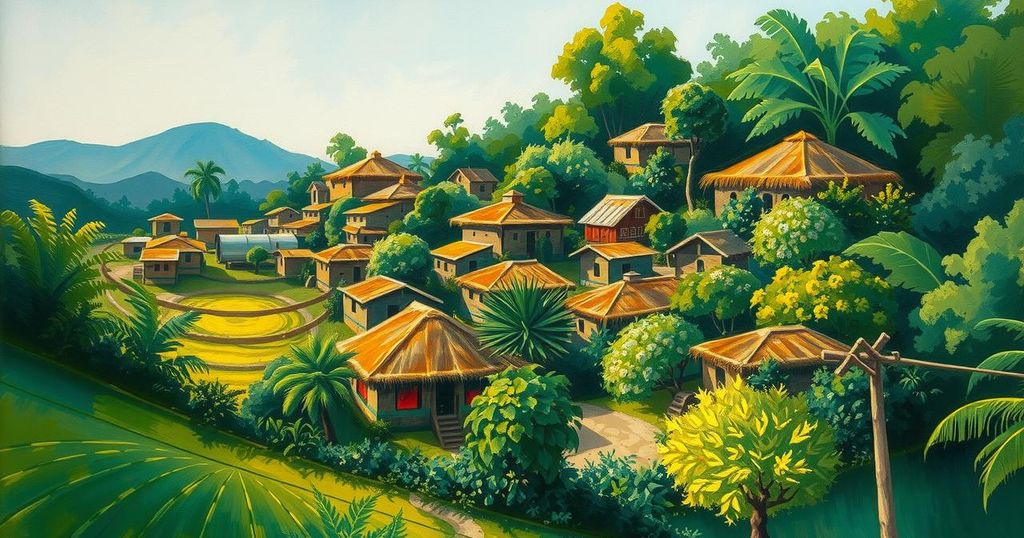Rwanda-backed M23 rebels have captured Walikale, a strategic town in eastern Congo, despite calls for a ceasefire from the Congolese and Rwandan presidents. The ongoing conflict has escalated since January, displacing millions and prompting concern over humanitarian crises. Local resources and operations are severely affected by the violence, highlighting the need for urgent negotiations and intervention.
Rwanda-backed M23 rebels have seized control of the mineral-rich town of Walikale in eastern Congo, despite calls for a ceasefire from the Congolese and Rwandan presidents. The conflict, which escalated in January with the rebels taking Goma, continues after failed ceasefire negotiations earlier this week between the Congolese government and M23 leaders.
The capture of Walikale allows the rebels to control a crucial road linking four provinces: North Kivu, South Kivu, Tshopo, and Maniema. Civil society leaders reported an increase in fighting, with heavy artillery fire audible throughout the town. Activist Fiston Misona expressed grave concerns, stating, “Our Congolese army is no longer fighting; it is as if we were being sacrificed.”
Despite the ongoing violence, the M23 rebels declared their intention to uphold a ceasefire, claiming their actions were intended to protect civilians from attacks by the Congolese army. They alleged that government forces were indiscriminately bombing populated areas, thereby justifying their military actions.
Walikale is known for its substantial tin and gold deposits, with the Bisie mine significantly contributing to the province’s tin exports. The recent rebel advance has prompted the mine operator, Alphamin Resources, to suspend operations. In light of this situation, President Felix Tshisekedi expressed willingness to negotiate with the United States concerning security and critical minerals.
The M23 group is among roughly 100 armed factions in eastern Congo, contributing to a humanitarian crisis that has displaced over 7 million people. Reports suggest the group has the backing of approximately 4,000 Rwandan troops. The U.N. Human Rights Council has initiated a commission to investigate reported atrocities, including severe violence inflicted by both sides during the conflict.
Doctors Without Borders reported severe impacts on their operations in Walikale, having suffered damage to facilities due to ongoing conflict. They expressed concern over an increasing number of wounded individuals as violence escalates in the region, creating profound distress among local civilians.
In summary, the situation in Walikale signifies the escalating tensions between Rwanda-backed M23 rebels and the Congolese army, amid failed ceasefire negotiations. The rebels’ control over this strategic town not only threatens local security but also impacts significant resources in the region. The traditional humanitarian crisis continues to worsen, raising urgent calls for international intervention and peaceful resolution efforts.
Original Source: www.mymotherlode.com




